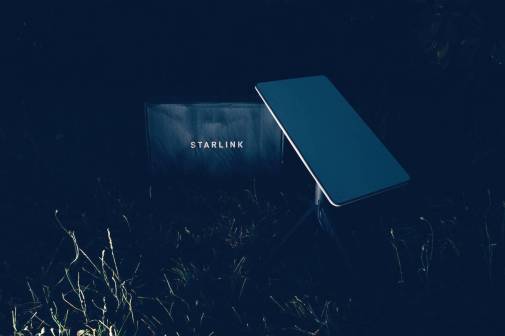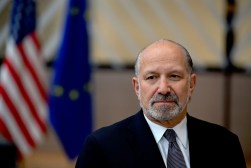SpaceX says Virginia unfairly favored fiber over satellite in BEAD proposal

In a letter sent Wednesday to the Virginia agency managing bids and proposals for the federal Broadband Equity, Access and Deployment program, SpaceX claimed the state’s final proposal was “manufactured” to purposefully exclude Starlink, the company’s low Earth orbit satellite internet service, from about 95% of eligible project locations.
The accusatory letter, which was addressed to the Department of Housing and Community Development as part of the agency’s public comment process before submitting the proposal to the National Telecommunications and Information Administration, claims that the state’s proposal would be a “massive waste of federal taxpayer money.” In its final proposal, Virginia proposed a mixture of internet technologies to win eligible BEAD service areas, with approximately 81% going to fiber, 10% to satellite and the remainder split between cable and fixed wireless providers.
Of the roughly 13,000 of the state’s 133,000 locations selected to be served with satellite, only 5,579 were won by Starlink, totaling $3.2 million in funding. SpaceX claims in its letter that not enough emphasis was given the competitiveness of its bids, which often came in at a fraction of the proposed costs of competing fiber builds.
“Simply put, Virginia has put its heavy thumb on the scale in favor of expensive, slow-to-build fiber bias over speedy, low cost, and technology neutral competition,” the letter read. “Allowing this sort of non-compliant proposal to proceed will inevitably delay administration of the program and, worse, ultimately slow or prevent delivery of broadband to Virginians that need it most.”
SpaceX claimed Virginia’s proposal does not comply with new BEAD guidance released by the Commerce Department last June, which dropped the Biden administration’s “fiber first” preference for BEAD projects and opened the door for states to spend a greater share of BEAD funds on other technologies, like LEO satellite and fixed wireless.
Virginia, which is one of a handful of states to have so far published its final proposal for public comment ahead of the set Sept. 4 deadline, was also one of the states that interpreted directives in the new BEAD guidance a bit more leniently, analysts told StateScoop. Instead of communicating to prospective internet service providers that applications proposing the lowest cost possible would be scored highest, Virginia said it would additionally evaluate applications on technical merits like speed, latency and scalability.
SpaceX claimed that this is evidence Virginia “failed to observe technology neutrality.”
“Virginia received a proposal from SpaceX to serve virtually every BEAD-eligible household in Virginia with high-speed broadband for $60 million dollars, available to Virginians immediately,” the letter read. “Instead, Virginia proposes to spend $613 million dollars for connectivity that will be deployed at some point within the next four years, if ever, resulting in taxpayers overspending for connectivity in Virginia by ten times the necessary amount.”
The state determined that more than 95% of SpaceX’s initial applications did not qualify due to questions about Starlink’s technical specifications. The company accused the state of ignoring real-world use cases of LEO satellite and the popularity of the service, calling the decisions “absurd.” SpaceX has called on Virginia to “immediately revise” its final proposal, and urged the NTIA to deny the current version.
The letter comes as questions about how Commerce’s changes to the BEAD programs this summer, which set the stage for LEO satellite companies like Starlink and Amazon’s Project Kuiper to win more federal funds, would impact the program’s efficacy. It also lands amid still swirling questions about the ethics of the government doing business with SpaceX, a company owned by billionaire and former “special government employee” Elon Musk. The company stands to win millions or even billions in government contracts despite its leader having influenced the policies that control those very contracts.






